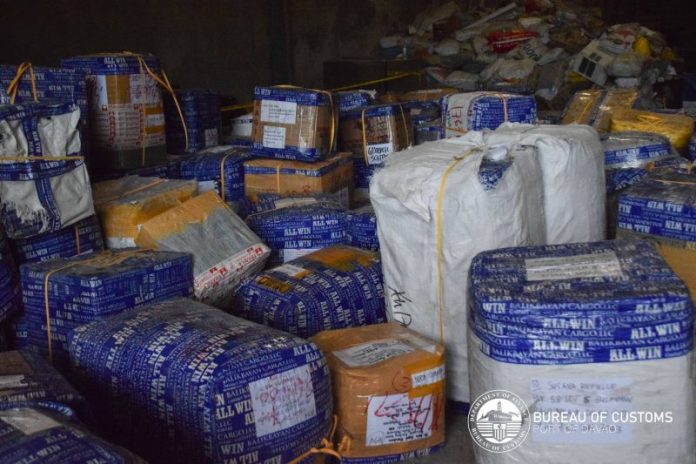-
The Bureau of Customs is drafting rules on the registration of sea cargo deconsolidators as third parties
-
The proposed Customs Administrative Order will identify obligations and liabilities of deconsolidators and their counterpart consolidators on the handling of shipment of consolidated shipment
-
Under the proposed rules, a deconsolidator refers to deconsolidators of balikbayan boxes, loose cargoes, and breakbulk shipments, among others, by sea
-
Stakeholders have until March 1 to submit their position papers on the draft order, the same day of the virtual public consultation on the proposed order
The Bureau of Customs (BOC) is drafting rules on the registration of sea cargo deconsolidators as third parties and on the conduct of their business with the bureau.
The draft Customs administrative order (CAO) will cover the registration of Philippine-accredited deconsolidators handling sea cargoes in relation to CAO No. 1-2018 (amended rules on consolidated shipment of balikbayan boxes), and CAO No. 6-2019 (registration of third parties dealing with BOC) in relation to CAO No. 7-2022 (accreditation of importers).
A deconsolidator refers to a local freight forwarder or consolidator’s agent or representative situated at the country of importation that provides services to ungroup or deconsolidate shipments, orders, and goods to facilitate distribution.
Under the proposed CAO, a deconsolidator refers to deconsolidators of balikbayan boxes, loose cargoes, and breakbulk shipments, among others, by sea.
The draft CAO will be the subject of a virtual public consultation on March 1. Stakeholders also have until that date to submit their position papers on the proposed order.
RELATED READ: BOC eyes balikbayan box deconsolidators registration under draft memo
Under CAO 01-2018, third-party service providers transacting with BOC have to register with the agency.
The proposed CAO aims to ensure that balikbayan boxes (personal effects) sent by Filipinos abroad will be delivered to the ultimate consignee in the Philippines.
It will also identify the obligations and liabilities of deconsolidators and their counterpart consolidators on the handling of shipment of consolidated shipment, including balikbayan boxes.
The draft CAO noted that the business of receiving, transporting, and delivering balikbayan boxes being performed by deconsolidators is imbued with public interest and as such, deconsolidators should perform their primary duty to deliver these goods to the ultimate consignees. They should also exercise the highest degree of diligence, as well as high standards of integrity in all their transactions.
Deconsolidators transacting with BOC, for and on behalf of importers and consignees, will be treated equally as the true importers or consignees and will be subject to the same responsibilities and penalties under CAO No. 07-2022.
Deconsolidators handling balikbayan boxes will post a cash bond in the amount of P2 million. The bond will guarantee the payment of duties and taxes and other charges, and the performance of the obligations related to the importation of balikbayan boxes.
In case of failure to process and clear the goods with the BOC, the performance bond will be used for the payment of duties and taxes and other charges. All cash bonds will be deposited in a special trust account, to be known as the Balikbayan Box Special Trust Account.
Deconsolidators will also pay a registration fee of P2,000 upon submission of their application to the BOC.
Registered deconsolidators will be issued a Certificate of Registration (COR) signed by the Customs commissioner and it will be valid for a period of one year, unless sooner revoked or cancelled. After securing their COR, deconsolidators must also register with BOC’s Client Profile Registration System. – Roumina Pablo





